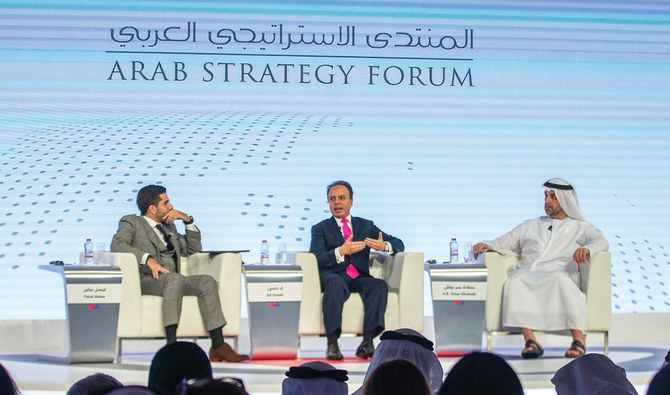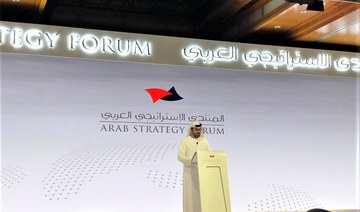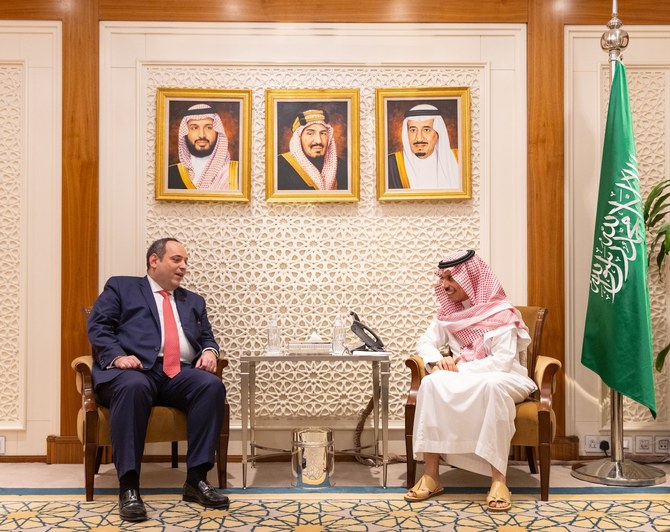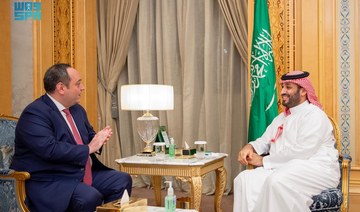DUBAI: Saudi Arabia came in for high praise at the Arab Strategy Forum, an annual event in Dubai attended by prominent scholars, diplomats, strategists and media professionals with the aim to forecast the events and trends for the next 10 years.
Taking part in a panel discussion on Monday with the theme “Future of Islamism in the Next Decade,” Ed Husain, a co-founder of UK’s counter-extremism think-tank Quilliam, drew attention to the ongoing reforms in the Kingdom.
Describing the changes as positive yet “unanticipated,” he praised the Kingdom’s efforts.
“These reforms are not just about Saudi Arabia, they affect the whole region: 1.8 billion Muslims look in that direction several times a day,” he said.
“We are looking to the future of Saudi Arabia as it affects all Muslims around the world,” he said, adding that with these changes, “Muslims and the rest of the world are better for it.”
Since the announcement of the Vision 2030 reform plans in 2016, Saudi Arabia has witnessed steady progress in women’s empowerment.
The most prominent examples are the lifting of the driving ban on women and the removal of a guardianship system that now enables Saudi women to travel or obtain a passport without male consent.
Other advances include the enactment of an anti-harassment law and changes to laws regarding custody and alimony. Women have been allowed to enter new fields such as aviation, state security, economy, entrepreneurship, tourism and entertainment.
Besides praising Saudi Arabia, Husain described the UAE as a country with “an almost ideal model,” where people are “privately pious and realise it is the state and not the mosque that is responsible for solving your social and economic issues.”
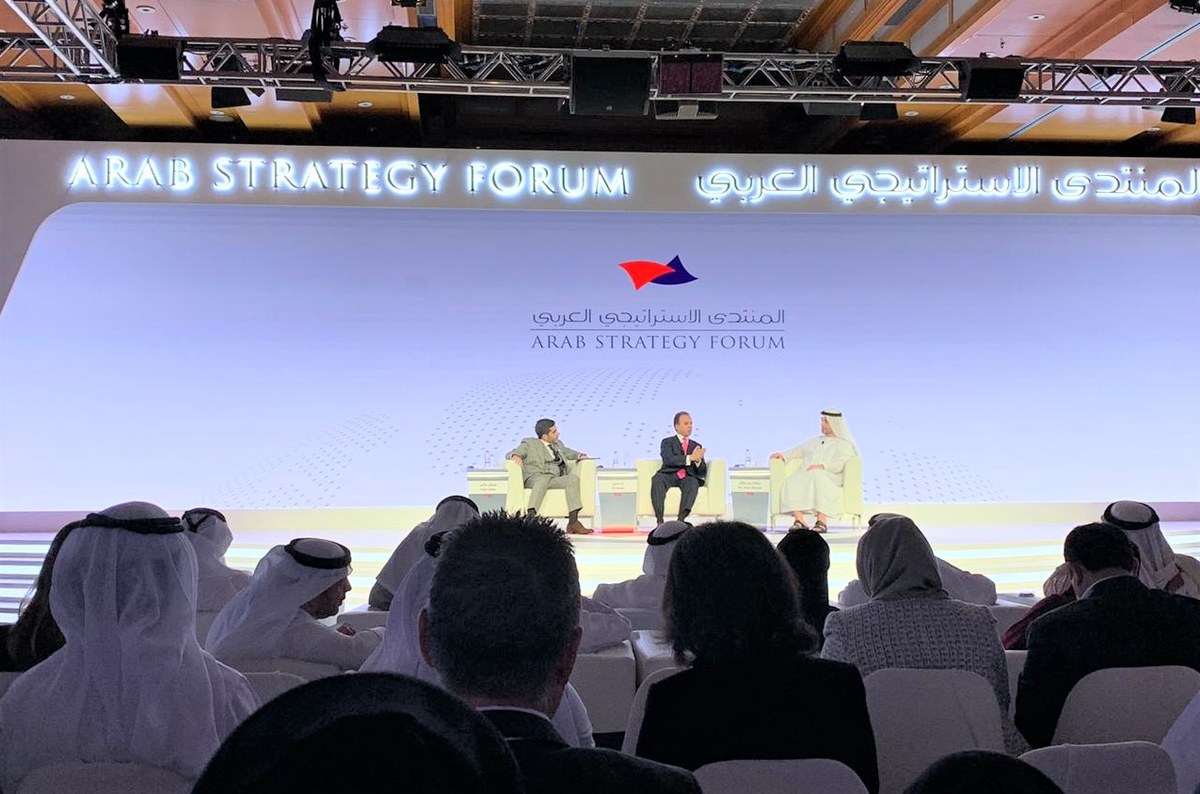
Ed Husain, center, co-founder of UK’s counter-extremism think-tank Quilliam, discusses a point during the panel ‘Future of Islamism in the Next Decade.’ (AN)
In his comments on “mosque and state,” Omar Saif Ghobash, assistant minister for cultural affairs at the UAE Ministry of Foreign Affairs and International Cooperation, said there is a need to redefine what it means to be a Muslim Arab today.
Ghobash, who served as UAE’s ambassador to France and Russia and is the author of “Letters to a Young Muslim,” said the definition is needed because it is no longer exceptional in the region to be creative, progressive and economically driven.
If one looks at history, the religious class carried a great deal of authority in how cities operated, he said. But with advances in knowledge and the creation of various specializations, “the clerical class” can no longer claim to have the ability to answer all questions that may fall under topics such as transport policies, logistics and demographic challenges.
According to Ghobash, “the new generation fortunately does not have a deep understanding of their own history, and maybe that’s a way for them to be more positive of the future — unburdened by their forefather’s baggage.”
The findings of a poll developed by Arab News as part of an ongoing collaboration with the ASF, “Mosque and state: How Arabs see the next 10 years,” were revealed during the panel discussion.
Moderating the session, Faisal J. Abbas, editor-in-chief of Arab News, cited YouGov poll data suggesting that the Arab world remains religious despite reforms and changes in different fields.
The survey suggests that 51 percent of Arabs are in favor of places of worship for other religions but fear a secular state model.
Husain ascribed the stigma connected with secularism in the region to the absence of a native, authentic and relevant definition that Arabs could identity with.
Under the circumstance, “the failure to articulate a strong Arab identity will create a vacuum for extreme Islamism,” said Husain, whose 2007 book “The Islamist: Why I Joined Radical Islam in Britain, What I Saw Inside and Why I Left” has been described as “as much a memoir of personal struggle and inner growth as it is a report on a new type of extremism.”
Criticizing political parties and organizations with an extremist agenda, he asked: “What has Hamas done for Gaza? What has Hezbollah done for Lebanon? What has the Muslim Brotherhood done for the Egyptians? The uprisings led to instability.”
He suggested “progress” as the best model for Arab states to adopt, pointing out that a desire to overthrow the government — as seen in the Arab Spring revolts since 2011— does not result in a “utopian” system.
“We are still suffering from the revolutions since 2011 but what we have seen is a strong response to them ... and that the overthrowing of a governments didn’t work, doesn’t work and will not work.”
Echoing Husain’s views, Ghobash said the sheer scale of social and economic problems across the Arab world is a result of power being used to drive an extremist agenda.
In his view, Arab states would be better off it they correctly identified and separated economic problems from religious ones.


















